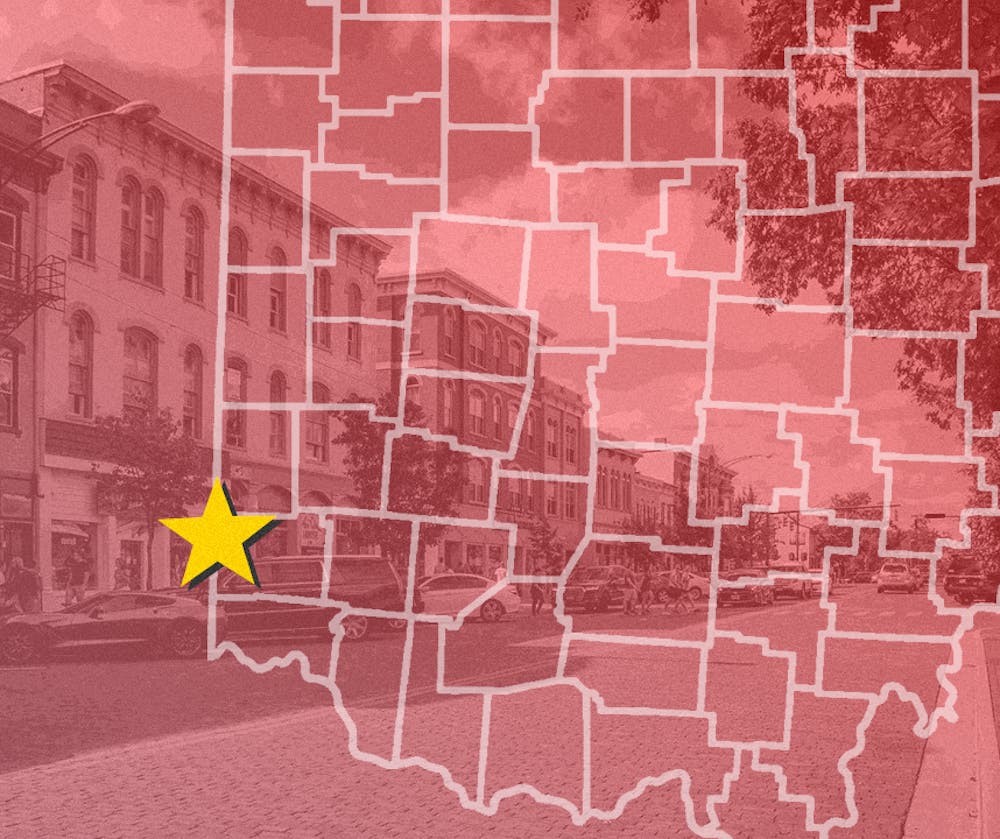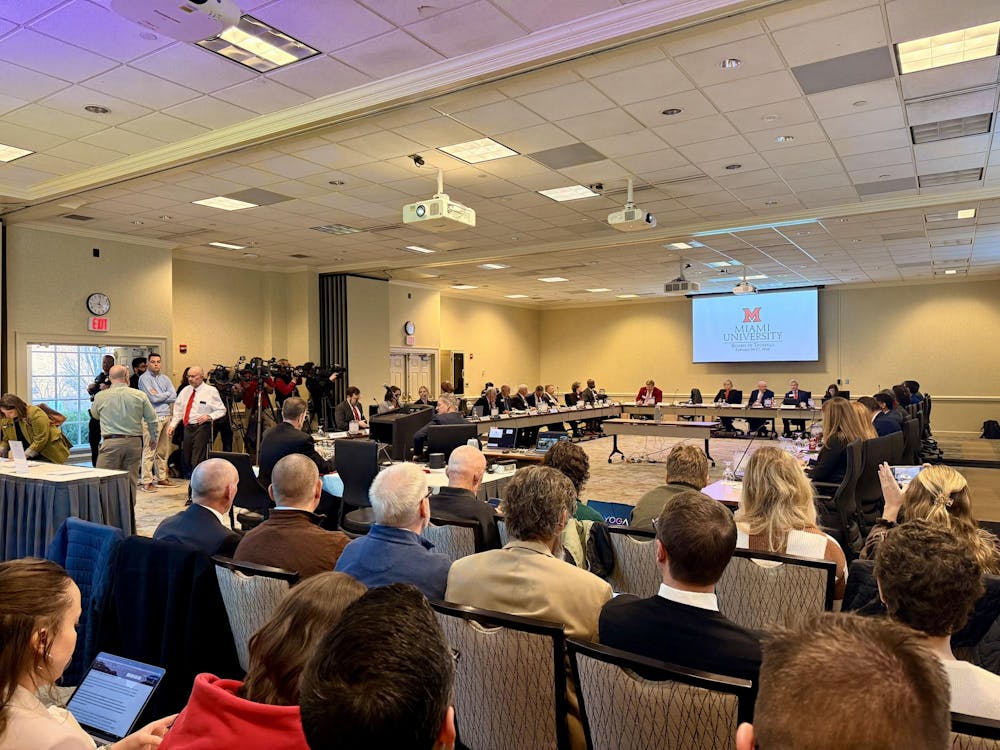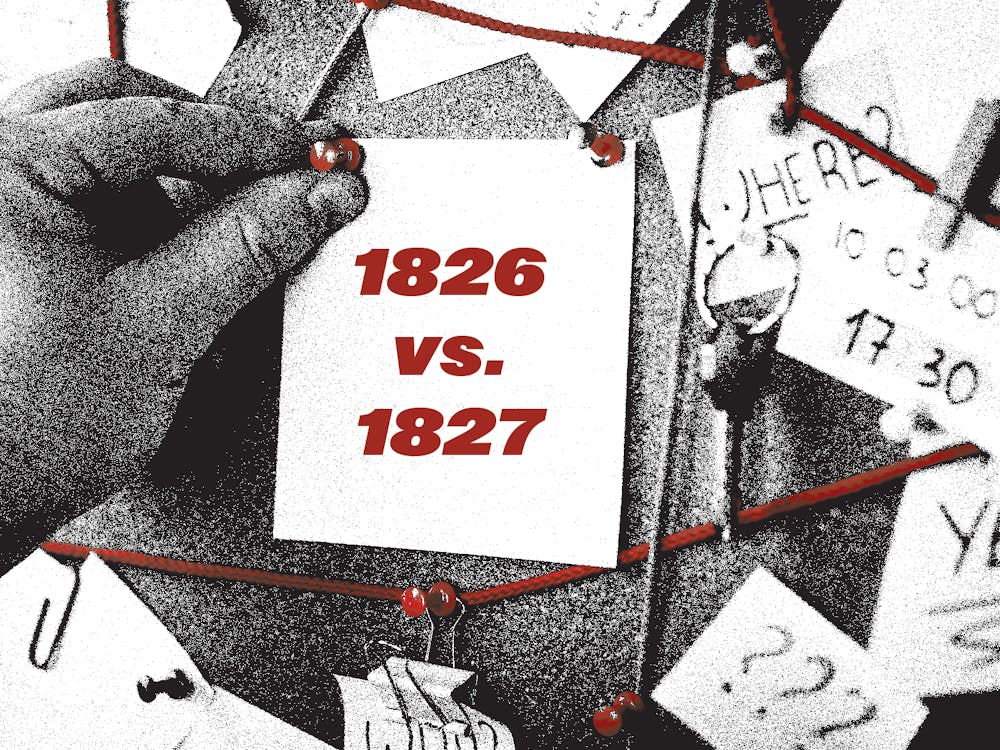Oxford City Council passed a resolution at its May 4 meeting encouraging the Ohio state legislature to reject a bill limiting ballot boxes to one per county and restrict early voting in elections.
The state bill, introduced by Representatives Bill Seitz of Cincinnati and Sharon Ray of Wadsworth, would limit each county Board of Elections to one drop box for ballots, eliminate in-person absentee voting on the Monday before elections, create automated voter registration through the Bureau for Motor Vehicles and shift the deadline to request absentee ballots from three days prior to an election to 10 days prior.
Councilor Chantel Raghu authored the Oxford resolution, which calls on the Ohio legislature to reject laws which make voting less accessible.
“The goals of voting should always be 100% voter turnout,” Raghu said. “Even though we had a lot more people than we ever had vote during this past election, it by no means was the highest voter turnout.”
Raghu said changing the policies in place during the 2020 election, which Ohio Secretary of State Frank LaRose called “the most successful election we’ve ever had,” would amount to voter suppression.
“It’s really scary to think that they’re trying to push these proposals through,” Raghu said, “and my hope is that with our resolutions and other cities hopefully joining in too, collectively we can use our voice as council to stop this before it gets included.”
Councilor Bill Snavely said the state bill fits in a larger trend of voter suppression laws being passed across the country in the aftermath of the 2020 election.
In Georgia, a March 31 bill established a cutoff date 11 days before an election to request mail-in ballots, mandated a drivers license or other form of identification to vote and made it illegal to offer food or drink to people waiting to vote in lines that could be hours long.
The law also extended early voting during general elections but cut the voting window in half for runoffs.
In Michigan, proposed election reform bills would require photo identification to vote, restrict access to absentee ballots and ban prepaid postage on mail-in ballots.
“These movements to try and restrict what it means to be a democracy in our country [are] maddening, and we shouldn’t put up with it,” Snavely said.
The resolution passed with all council members voting in favor.
Enjoy what you're reading?
Signup for our newsletter
Council also passed an ordinance repealing the city’s ban on mass gatherings outdoors which originally went into effect nearly a year ago.
The original ordinance passed as an emergency measure last summer to limit the spread of COVID-19. Under the ordinance, no more than 10 people from different households could be in the same indoor or outdoor gathering. The new ordinance was also passed as an emergency measure, meaning it goes into effect immediately and doesn’t have to be revisited at the next council meeting.
Councilor David Prytherch said the original ordinance helped keep the community safe during Miami University’s academic year but has reached its natural end as vaccinations increase and research suggests outdoor gatherings are relatively safe
“I think this is a wise move,” Prytherch said. “We can still protect through limiting gatherings indoors … It’s a safe thing to do, it’s a safe transition for us to do, so I’m glad we’re at a place where we can be contemplating this.”
Councilor Jason Bracken was the sole vote against the ordinance, saying Oxford’s population density while students are still on campus makes the risk of infection too high.
“There’s not much stopping people from starting outdoor gatherings and going indoors,” Bracken said. “While I approve of lifting [the outdoor gathering ban], I don’t think it’s a good idea until the students have already left.”
The next City Council meeting will be streamed on YouTube at 7:30 p.m. on Tuesday, May 18.




